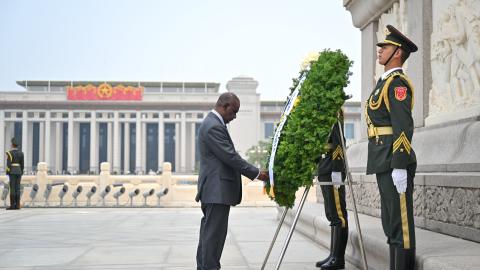Executive Summary
While the United States and advanced economies and democracies in Europe and Asia are hardening their views of and position against China, the latter is gaining much ground with respect to the developing economies of the Global South. Indeed, China increasingly demands that developing nations base their discourse and policies on approaches that Beijing supports, and many Global South nations are increasingly complying. In other words, a growing number of these nations have started to alter and adopt discourse and policies that better align with Chinese demands and preferences.
In the Indo-Pacific, a region that will largely determine the future shape of the global strategic landscape, evidence shows that developing nations are absorbing Chinese norms and preferences and gradually adjusting their thinking and behaviors accordingly.
China’s progress vis-à-vis the Global South—especially in the Indo-Pacific—relies on what material inducements and opportunities Beijing can offer. These are most successful when they prioritize rapid development and regime security over liberal economic rules and individual rights. Meanwhile, regardless of where the fault lies, many developing nations do not believe they have benefited as much materially or institutionally from the US-led order as they would like or expect.
Members of the Global South often believe the Chinese narrative about the alleged failure of US-led globalization in the post-colonial and post–Cold War periods. For this reason, many in developing economies believe that the interests and values of these nations (or at least those of the regimes in power) better align with what China is promising than with what Washington is delivering. The US and allies such as Japan and Australia have to accept and respond to this reality.
This report analyzes and assesses why and how China is making worrying progress when it comes to shaping and influencing the policies and actions of developing economies in the Indo-Pacific. It explains why this is a significant problem for the US and its allies. It then offers some recommendations to counter the Chinese Global South strategy in the region.
In offering six recommendations, this report argues that the US can complicate China’s bid for leadership within the Global South, increase the cost and risk for Beijing, challenge and change narratives and discourse favoring China in the Global South, and compete more effectively in the normative and institutional context.















